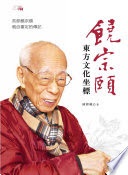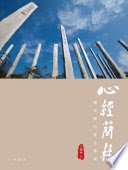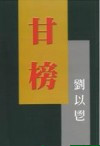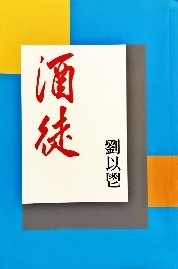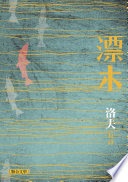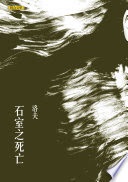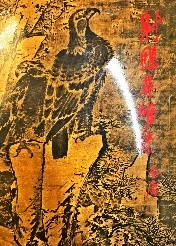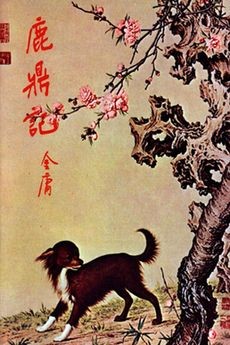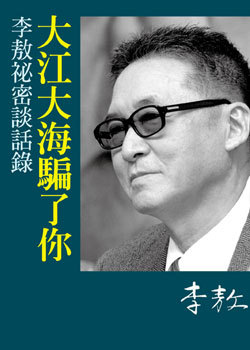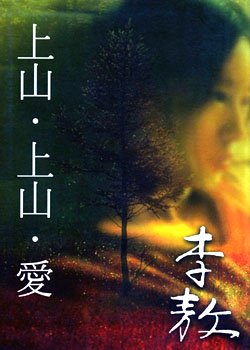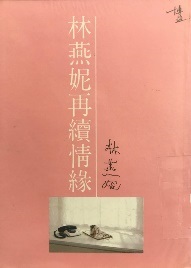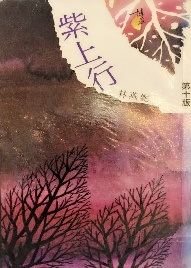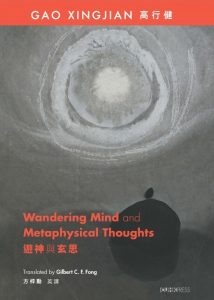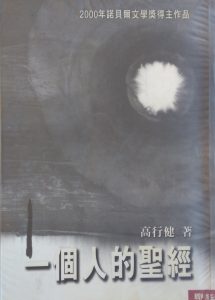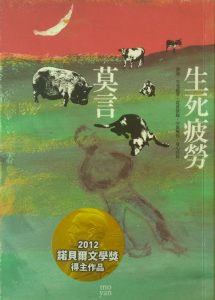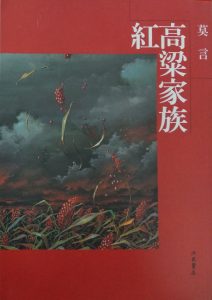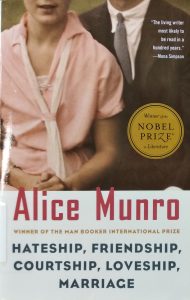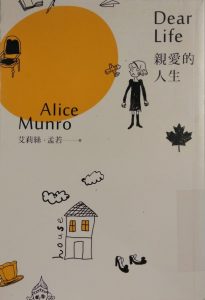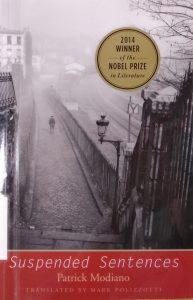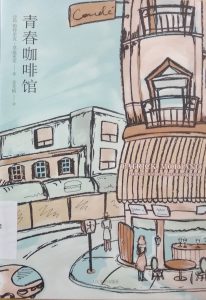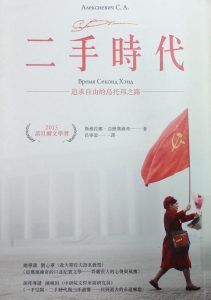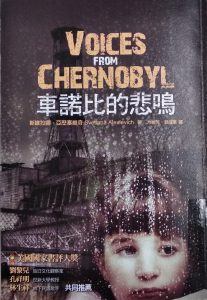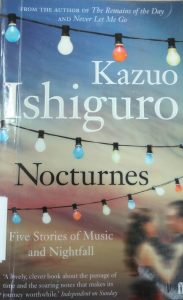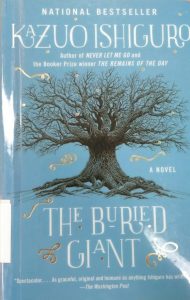SELECTED OUTSTANDING CHINESE LITERARY AUTHORS/SCHOLARS
| Authors/Scholars | Biography | Library Collections |
|
Jao Tsung-I (饒宗頤) 1917-2018 |
Jao Tsung-I is a master in the study of Chinese culture. He has devoted his entire life to the pursuit of excellence in the academic and artistic worlds. In the academic world, Jao Tsung-I has pursued research with a passion that few has equaled. His motto is to “Seek the Truth, Seek the Standard, and Seek the Justness”. He pioneered research on the Dunhuang Manuscripts (now known as “Dunhuangology” 敦煌學) and in Chaozhou Studies(潮學). His research covers 13 genres spanning the entire field of Chinese culture, including ancient history, oracle bone inscriptions, and Chuci. |
Selected Major Works |
|
More Library Resources
|
||
|
Liu Yichang (劉以鬯) 1918-2018 |
Liu Yichang is a writer, editor and translator, who has published novels and short stories, as well as essays and articles in newspapers and magazines. Liu was born in Shanghai and he was a keen promoter of new literature in Shanghai. He began his career as a journalist in Chongqing during WWII. He moved to Hong Kong in 1948 and founded Hong Kong Literature (《香港文學》) in 1985, a monthly magazine in which he acted as director until his retirement in 2000. His best-known novel is The Drunkard (《酒徒》). Many other stories written by him are evocative of the speedy, noisy, impersonal but also challenging and open place that Hong Kong is: revealing the coexistence of many worlds, and expressing confusion between past and present, Chinese and Western culture, even things and spirits. His role in introducing Western literature and art in Hong Kong Literature, has been essential to Hong Kong culture. |
Selected Major Works |
|
More Library Resources
|
||
|
Luo Fu (洛夫) 1928-2018 |
Luo Fu was born in Hengyang of Hunan Province, China. He joined the Republic of China army during the Sino-Japanese War and came to Taiwan in 1949 after the Nationalist army lost the Chinese Civil War. Luo Fu began his career as a poet with youthful lyrics in the 1940s. Together with Chang Mo (張默) and Ya Xian (瘂弦), Luo Fu cofounded the Epoch Poetry Society in 1954 and for more than a decade worked as editor of the Epoch Poetry Quarterly (《創世紀》詩刊). His first book, River of the Soul (《靈河》) was published in 1957. In 1996, he moved to Vancouver, where he lived for 20 years. Luo Fu’s 3,000-line poem Driftwood (《漂木》) was published in 2000 when he was in Canada. In 2001, he was nominated for the Nobel Prize in Literature. Luo Fu was the author of more than 30 volumes of poetry, seven collections of essays, five volumes of literary criticism and eight book-length translations. His poetry has been translated into English, Swedish, French, German, Japanese, and Korean. He was a controversial figure in many literary debates that shaped the evolution of modern Chinese poetry. His poetry had been immensely influential in Taiwan and China. |
Selected Major Works |
|
More Library Resources
|
||
|
Jin Yong (金庸) 1924-2018 |
Jin Yong is a Hong Kong-based novelist, publisher, and political figure whose martial arts adventures are perhaps the most widely read of all twentieth-century Chinese fiction. Jin Yong serialized his first martial arts novel Book and Sword (《書劍恩仇錄》) in 1955. In 1959, Jing Yong co-founded the Hong Kong newspaper Ming Pao with his high school classmate Shen Baoxin (沈寶新). He served as its editor-in-chief for years, writing both serialized novels and editorials. After completing The Deer and the Cauldron (《鹿鼎記》) in 1972, Jin Yong spent ten years on revising his 36-volume Complete Works. Though once banned in both Taiwan (for the author’s early associations with the left) and the mainland (for his criticism of the CCP), the novels circulated widely in contraband editions. Furthermore, those novels are now universally available in authorized form, as well as repeatedly adapted into television serials, martial arts films, comic books and video games. They are increasingly credited with transcending the limitations of formula fiction and comprising a significant chapter in the history of modern Chinese fiction. |
Selected Major Works |
|
More Library Resources
|
||
|
Li Ao (李敖) 1935-2018 |
Li Ao was a Taiwanese writer and political campaigner. He was born in Harbin, China. Li moved to Taiwan at the end of the Chinese Civil War in 1949 and studied in history at the National Taiwan University. In 1961, he began writing as the editor-in-chief for a liberal literary magazine called Wen Hsing (文星). During Taiwan’s long decades of martial law, Li emerged as a rare voice of dissent, railing against traditional Chinese culture and the Kuomintang government while advocating for the adoption of Western cultural values like liberalism and democracy. Li was known affectionately as the “madman” of Taiwan’s literary and political circles, a man who vigorously defended freedom of speech. He had spent time in prison for his political views. Li wrote more than 100 books, mostly about history and politics, and more than 90 of them were banned in Taiwan until 1991. His novel, the Fayuan Temple of Beijing (北京法源寺), was shortlisted by Nobel in 2000. |
Selected Major Works |
|
More Library Resources
|
||
|
Lin Yanni (林燕妮) 1943-2018 |
Lin Yanni was a Hong Kong novelist, columnist, businesswoman, and socialite, often called the “prodigal daughter” of Hong Kong. She was admitted to the University of Berkeley at the age of 17. After graduation, she returned to Hong Kong, studied for a double master’s degree. After that she worked as a columnist, radio DJ and lyricist. She was diligent in writing and became a productive writer in the 1980s. She published more than eighty books, many of which have been adapted into films. She also wrote regular columns for the Ming Pao. Her famous works included “Infatuation”, “Country”, “The League” and “The Burial of Youth” (《痴》、《緣》、《盟》及《青春之葬》). Lin Yanni was praised by Jin Yong as the “best modern woman essayist” and won the second “Hong Kong Artists Federation Best Writer Award.” (香港藝術家聯盟最佳作家獎(1989)) |
Selected Major Works |
|
More Library Resources
|
SELECTED NOBEL PRIZES IN LITERATURE
| Awarded Year | Laureates | Biography | Library Collections |
| 2000 |
Gao Xingjian ( 高行健) |
Born January 4, 1940, Ganzhou, Jiangxi province, China, Chinese émigré novelist, playwright, and critic who in 2000 was awarded the Nobel Prize for Literature “for an oeuvre of universal validity, bitter insights and linguistic ingenuity.” He was also renowned as a stage director and as an artist. |
Selected Major Works |
|
More Library Resources |
|||
| 2012 |
Mo Yan (莫言) |
Born March 5, 1955, Gaomi, Shandong province, China. Chinese novelist and short-story writer renowned for his imaginative and humanistic fiction, which became popular in the 1980s. Mo was awarded the 2012 Nobel Prize in Literature. |
Selected Major Works |
|
More Library Resources
|
|||
| 2013 |
Alice Munro |
Original name Alice Ann Laidlaw, (born July 10, 1931, Wingham, Ontario, Canada), Canadian short-story writer who gained international recognition with her exquisitely drawn narratives. The Swedish Academy dubbed her a “master of the contemporary short story” when it awarded her the Nobel Prize for Literature in 2013. Munro’s work was noted for its precise imagery and narrative style, which is at once lyrical, compelling, economical, and intense, revealing the depth and complexities in the emotional lives of everyday people. |
Selected Major Works |
|
More Library Resources
|
|||
| 2014 |
Patrick Modiano |
Born July 30, 1945, Boulogne-Billancourt, France), French writer who in more than 40 books used his fascination with the human experience of World War II to examine individual and collective identities, responsibilities, loyalties, memory, and loss. In 2014 he became the 15th Frenchman to receive the Nobel Prize for Literature. Upon announcing the prizewinner, the Swedish Academy cited “the art of memory with which he has evoked the most ungraspable human destinies and uncovered the life-world of the occupation.” |
Selected Major Works |
|
More Library Resources
|
|||
| 2015 |
Svetlana Aleksievich |
Born May 31, 1948, Stanislav, Ukraine, U.S.S.R. Belarusian journalist and prose writer, a Russian-language author of meticulously crafted works of depth and introspection that provided a compelling and uncompromising portrayal of the social and political upheaval within the Soviet Union from the postwar era to the fall of communism. She won the Nobel Prize for Literature in 2015. One of a minority of laureates recognized as a dedicated writer of nonfiction, Alexievich devised a hybrid literary genre that evolved as “the closest possible approximation to real life,” wherein human voices were allowed to speak for themselves about the main events of the age. Her body of work constituted “a living history” of Soviet and post-Soviet culture that provoked controversy and official repudiation. Alexievich was cited by the Swedish Academy “for her polyphonic writings, a monument to suffering and courage in our time.” |
Selected Major Works |
|
More Library Resources
|
|||
| 2017 |
Kazuo Ishiguro (石黑一雄) |
Born November 8, 1954, Nagasaki, Japan, Japanese-born British novelist known for his lyrical tales of regret fused with subtle optimism. In 2017 he won the Nobel Prize for Literature for his works that “uncovered the abyss beneath our illusory sense of connection with the world.” |
Selected Major Works |
|
More Library Resources
|
(Source of biography: Britannica Academic Database)

